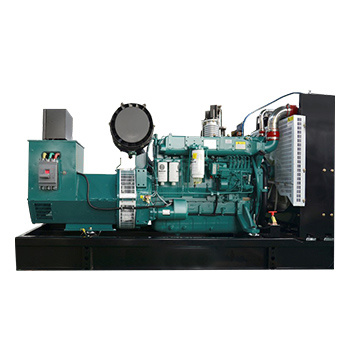Unlocking the Power of Generator Sets: A Comprehensive Guide
May 23,2025
Generator sets, commonly referred to as gensets, are vital components in the realm of electrical power generation. These systems combine an engine with an electrical generator to produce electrical energy, ensuring a reliable power supply in various situations. They are particularly indispensable for residential, commercial, and industrial applications where grid power may be unreliable or unavail

Generator sets, commonly referred to as gensets, are vital components in the realm of electrical power generation. These systems combine an engine with an electrical generator to produce electrical energy, ensuring a reliable power supply in various situations. They are particularly indispensable for residential, commercial, and industrial applications where grid power may be unreliable or unavailable.
One of the primary applications of generator sets is in backup power solutions. During power outages, gensets serve as a crucial alternative to maintain essential operations, allowing businesses to continue functioning without interruption. This is especially critical for industries such as healthcare, where consistent power is necessary for life-saving equipment. Additionally, many construction sites rely on generator sets to provide temporary power, enabling tools and machinery to operate efficiently.
When selecting a generator set, several critical factors must be considered. First, power output is a key consideration, as it determines how much electrical load the generator can support. Gensets come in various sizes, so understanding your power requirements is essential. It's also important to evaluate the fuel type used by the generator set. Common fuel options include diesel, gasoline, natural gas, and propane, each with unique benefits and limitations. Diesel engines tend to offer efficient fuel consumption and durability, while natural gas generators can provide cleaner emissions.
Moreover, the portability of generator sets can vary. Some models are designed for stationary use, often permanently installed for backup power, while others are portable, allowing for flexible deployment in various locations. This versatility makes them suitable for diverse applications from home use to large-scale industrial operations.
Maintenance is another critical aspect to consider when utilizing a generator set. Regular upkeep ensures optimal performance and extends the lifespan of the equipment. Routine checks and servicing should include oil changes, air filter replacements, and battery inspections. Understanding the manufacturer's guidelines for maintenance can help prevent unexpected failures and costly repairs.
In conclusion, generator sets are integral to modern power solutions, providing reliability and versatility in power generation. Whether for emergency backup, construction, or mobile applications, understanding the features and functions of generator sets can empower users to make informed decisions. Proper maintenance and selection based on specific needs will ensure that these systems operate efficiently and effectively, safeguarding against power disruptions in various environments.
One of the primary applications of generator sets is in backup power solutions. During power outages, gensets serve as a crucial alternative to maintain essential operations, allowing businesses to continue functioning without interruption. This is especially critical for industries such as healthcare, where consistent power is necessary for life-saving equipment. Additionally, many construction sites rely on generator sets to provide temporary power, enabling tools and machinery to operate efficiently.
When selecting a generator set, several critical factors must be considered. First, power output is a key consideration, as it determines how much electrical load the generator can support. Gensets come in various sizes, so understanding your power requirements is essential. It's also important to evaluate the fuel type used by the generator set. Common fuel options include diesel, gasoline, natural gas, and propane, each with unique benefits and limitations. Diesel engines tend to offer efficient fuel consumption and durability, while natural gas generators can provide cleaner emissions.
Moreover, the portability of generator sets can vary. Some models are designed for stationary use, often permanently installed for backup power, while others are portable, allowing for flexible deployment in various locations. This versatility makes them suitable for diverse applications from home use to large-scale industrial operations.
Maintenance is another critical aspect to consider when utilizing a generator set. Regular upkeep ensures optimal performance and extends the lifespan of the equipment. Routine checks and servicing should include oil changes, air filter replacements, and battery inspections. Understanding the manufacturer's guidelines for maintenance can help prevent unexpected failures and costly repairs.
In conclusion, generator sets are integral to modern power solutions, providing reliability and versatility in power generation. Whether for emergency backup, construction, or mobile applications, understanding the features and functions of generator sets can empower users to make informed decisions. Proper maintenance and selection based on specific needs will ensure that these systems operate efficiently and effectively, safeguarding against power disruptions in various environments.





